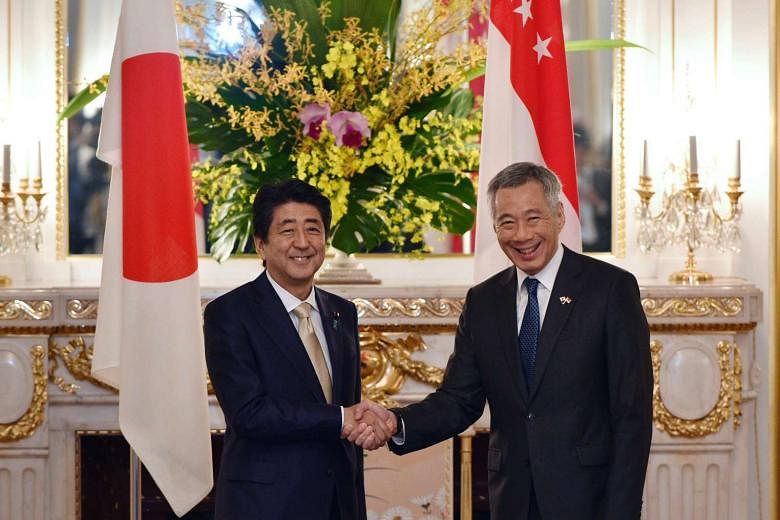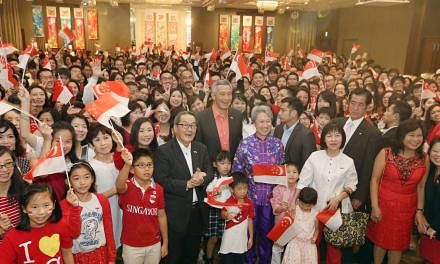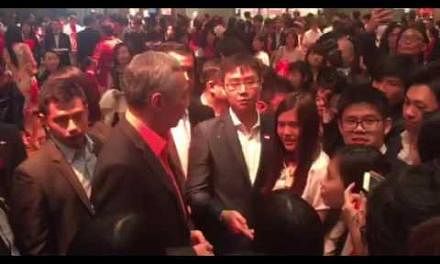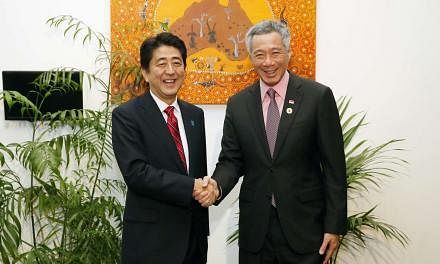TOKYO - The ratification of the Trans-Pacific Partnership (TPP) is crucial at a time when protectionist sentiments are on the rise around the world, Prime Minister Lee Hsien Loong said on Wednesday (Sept 28).
He said at a joint press conference alongside his Japanese counterpart Shinzo Abe after a bilateral summit: "Japan's ratification is especially important as it is the second largest economy in the TPP, and the third largest economy in the world. This complements Japan's efforts at economic revitalisation."
He was also encouraged to hear that Japan aims to ratify the pact by this year, noting that Mr Abe expressed confidence he would get support from the Diet.
Mr Lee also hoped the wider Regional Comprehensive Economic Partnership (RCEP) would make good progress.
The strategic importance of the TPP agreement, which involves 12 countries from the Asia-Pacific, was among the issues discussed at the meeting, the leaders' ninth since 2013.
Japan and Singapore are both strong proponents for the speedy ratification of the TPP.
Mr Lee also said Singapore welcomes Japan playing a more active role in the region.
And he expressed appreciation for Japan's invitation to President Tony Tan Keng Yam to make a state visit in late November.
The two leaders were speaking to the media after Mr Lee received, on behalf of the late founding Prime Minister Lee Kuan Yew, Japan's highest honour for a foreign dignitary.
Japan has posthumously awarded the Grand Cordon of the Order of the Paulownia Flowers to the late Mr Lee for helping to forge bilateral ties over several decades.
Mr Lee is in Tokyo for a four-day official visit, that ends Thursday, to mark 50 years of bilateral ties. He said both countries enjoy robust economic ties and strong people-to-people relations.
Even so, Mr Lee and Mr Abe agreed there is still more that both sides can do together.
Both leaders said their vice-ministers would discuss cooperation in land, sea and air transport and infrastructure, and Mr Abe hoped this would include introducing Japan's Shinkansen bullet train technology for the Singapore-Kuala Lumpur high-speed rail project.
On the Shinkansen, Mr Lee said he told Mr Abe it was "absolutely Singapore's wish to have the best technology for the high-speed rail". Japan has some of the best technology in the world on high-speed rail, and Singapore will ensure and was working with Malaysia to ensure a rigorous, objective, high-standard process for the tender to get the best possible system, he added.
Both sides can also expand their bilateral air services agreement, so as to strengthen connectivity between Singapore and Japan and with the rest of the world, Mr Lee said.
He also noted that the Japan-Singapore Economic Partnership Agreement - which was signed in 2002 and is Japan's first free trade agreement - is under its third review, and progress will give bilateral relations a further boost, he said.
Other regional and international developments were also on the agenda.
Both leaders discussed the situation in the South China Sea. Mr Lee said Singapore is a non-claimant state and does not take sides on the competing territorial claims, but has key interests to protect - including freedom of navigation and overflight, and a rules-based regional and international order. Such an order would uphold the rights and privileges of all states, which should show full respect for legal and diplomatic processes in the resolution of disputes.
Mr Lee noted that Singapore has expressed support for Japan's Proactive Contribution to Peace security policy, as well as Japan's peace and security legislation under the framework of the US-Japan Security Alliance.
Japan also has "excellent relations" with Asean, Mr Lee said, as he thanked Japan for its support for the grouping's development.
"The Asean-Japan partnership is one of Asean's most substantive", he added, as he urged Japan to work closely with the 10-nation Southeast Asian bloc to further deepen economic ties.














